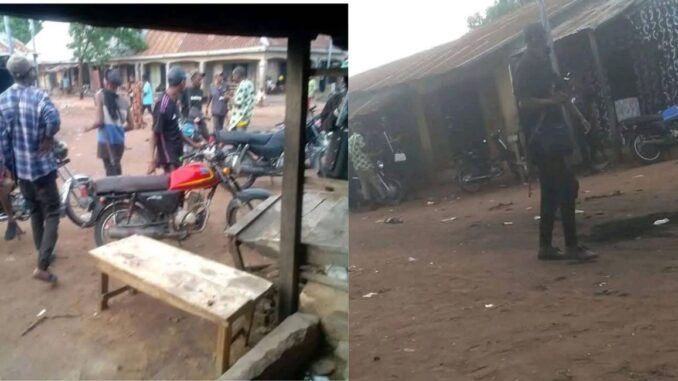News
FCCPC vows to protect consumers from Soaring price of goods

By Francesca Hangeior.
The Federal Competition and Consumer Protection Commission (FCCPC) has vowed to protect Nigerian consumers by tackling price fixing and other exploitative practices in markets across the country.
Price gouging is an unfair practice that takes advantage of crises or economic hardships to inflate prices arbitrarily, while price fixing occurs when competitors or market associations, without their own products, collude to set prices.
The Commission, in a statement issued by Ondaje Ijagwu, Director, Special Duties (& Strategic Communication) in Abuja, this afternoon, insisted, “While promoting competition is essential for economic health, as evidenced in sectors like telecommunications, it is equally important to enforce laws against practices that undermine fair competition.
“The FCCPC remains committed to a balanced approach that respects the dynamics of a free market while ensuring that consumers are protected from harmful practices.
“We encourage all businesses to engage in ethical and lawful practices that contribute to a fair and competitive marketplace. The FCCPC does not seek to suppress private enterprise; our role is to ensure that the market operates on principles of fairness, transparency, and accountability. When businesses, as illustrated by the cement sector case, engage in practices that harm consumers, the FCCPC will take decisive action.”
The FCCPC pledged to work collaboratively with all stakeholders; businesses, consumer groups, and other government agencies, to address both the immediate and remote causes of exploitative pricing, adding, “Our approach combines enforcement with cooperation, aiming to protect consumers and maintain a healthy competitive environment.”
According to the organisation, it has given a one-month moratorium before enforcement begins, providing businesses with the necessary time to adjust their practices and ensure full compliance with laws aimed at protecting consumers and fostering fair competition.
It added “The FCCPC stands firm in its commitment to enforcing the Federal Competition and Consumer Protection Act (FCCPA) 2018. We will continue to monitor the marketplace and take action against any business practices that violate the law.
“Consumers and businesses alike can trust that we will remain vigilant in upholding the principles of fair competition and consumer protection.”
The commission asserted that prices in a competitive marketplace are determined solely by the forces of supply and demand, adding, it did not, therefore, contemplate price control, having considered it outside the scope of its responsibilities.
“We have never considered, nor will we ever consider, intervening in the market to regulate prices. Any claims to the contrary are baseless and unfounded. Our recent directives are not about controlling prices but are focused on curbing exploitative practices and anti-competitive behaviours that distort the marketplace and harm consumers.
“We recognise the complexities of the current economic environment, including challenges such as foreign exchange fluctuations and fuel subsidy removal. These factors certainly impact pricing, but they do not excuse or justify exploitative practices that are anti-consumer. The Commission’s proposed actions in the retail sector are targeted and evidence-based, responding to specific instances where consumers are vulnerable to such exploitation,” the commission.
The FCCPC said that the disclosure by Abdul Samad Rabiu, Chairman of BUA Cement, on how BUA Cement’s effort to sell cement at a fair price of N3,500 per bag, was undermined by dealers who inflated prices to as much as N7,000 to N8,000 per bag, exemplified the kind of exploitative conduct that it was committed to addressing.
According to the organization, such practices make it difficult for ethical businesses to thrive and should not be condoned in the country.
News
Reps Tackle CBN, OAGF Over Missing Grants, Bailout Funds

According to him, such financial mishandling not only disrupts critical public services and projects but also results in major losses to the nation’s purse—resources that could have been channelled into crucial services and developmental efforts, as laid out in Section 14(2)(b) of the Constitution.
Speaker Abbas, thereafter setup a Special Committee to be chaired by Rep. Chinedu Martins to immediately launch a probe into the “Utilisation of take-off grants, bailout funds, and interventions allocated to MDAs, government institutions, and GOEs from 2015 to present.”
News
Abuja light rail project must be commissioned on May 29-Wike vows

The FCT Minister, Mr. Nyesom Wike, expressed satisfaction with the progress on the Abuja light rail project, reaffirming its May 29 delivery as sacrosanct.
He made these assurances after inspecting the ongoing construction of access roads to the train stations on Wednesday, from Metro Train Station in the Central Area to Nnamdi Azikiwe International Airport, Abuja.
Reassuring journalists accompanying him, the minister reiterated that President Bola Tinubu would commission the rail project on May 29 to mark his second year in office.
The visited stations were Wupa station near Idu and Bassanjiwa station near the airport.
“This is part of our routine inspection of ongoing projects to see the contractors’ progress,” Wike explained.
“We are working day and night to fulfill our promise to President Tinubu and FCT residents. By May, Mr. President will ride on the Metro line.”
News
Just in: Alleged Herdsmen Armed With AK-47 Rifles Take Over Communities In Benue State

Gunmen suspected to be Fulani herdsmen are currently invading some communities in the Ukum Local Government Area of Benue State.
According to sources, the herdsmen armed with AK-47 rifles stormed the community around 04:15pm on Thursday.
“Our lives are in danger this evening, armed Fulani herdsmen, about 600 in numbers have taken over our communities this evening,” a resident told SaharaReporters.
“They’re currently moving around towns in Ukum Local Government Area of Benue state. No security personnel at all, Governor Alia didn’t send security, they said operation will start soon once they (herders) have observed the place.”
The insecurity situation in Benue has been alarming in recent weeks with attacks from gunmen suspected to be herdsmen.
The media had reported that suspected herdsmen again unleashed terror in Benue State, attacking three communities in Otukpo Local Government Area (LGA) on Wednesday, just a day after 11 people were killed in a deadly raid on Otobi community.
The latest victims of the escalating violence were Emichi, Odudaje, and Okpamaju, communities that had previously suffered an attack in February, which left five people dead.
However, the renewed attack has created fear and mass displacement among residents, with women and children fleeing to safety.
Local sources say the death toll from the fresh attack remains unclear, but several casualties are feared.
-

 News7 hours ago
News7 hours agoBREAKING: Unknown gunmen reportedly storm Senator Natasha’s family residence
-

 News10 hours ago
News10 hours agoSnub story on removal of Rivers Sole Administrator, it’s FAKE-Chief Registrar
-

 News16 hours ago
News16 hours ago“How my father escaped assassination” – Bishop Oyedepo’s daughter
-

 News16 hours ago
News16 hours agoFG expresses sympathy for CBEX victims, urges a united effort to combat Ponzi schemes
-

 News9 hours ago
News9 hours agoSAD! Again, Alleged Herdsmen Attack Three Benue Communities
-

 Politics9 hours ago
Politics9 hours agoPDP govs are jokers, can’t stop coalition train, Atiku boasts
-

 News22 hours ago
News22 hours agoEl-Rufai labels Tinubu’s government ‘worst in Nigeria’s history’
-

 News16 hours ago
News16 hours agoWoman tragically lost her life after attempting to flee through glass door during alleged incident of domestic violence






